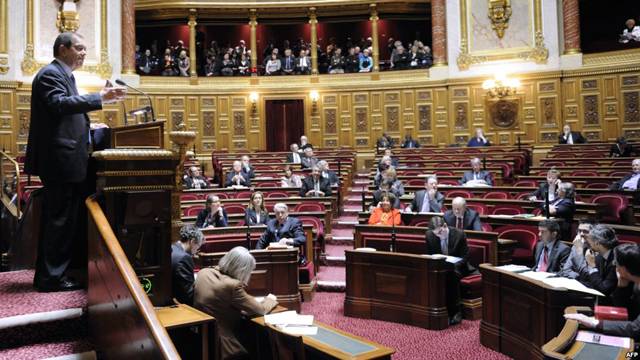Join Our Telegram channel to stay up to date on breaking news coverage
PARIS (InsideBitcoins) — Bitcoin has been gaining in popularity since it first appeared online, and governments across the globe are taking steps to ensure that digital currencies, just like any other currencies, benefit from a sound and stable legal framework.
In a move that validates France’s willingness to recognize the legitimacy of Bitcoin, a report issued by the committee of finance of the French senate proposes several measures which aim to regulate digital currencies.
The move isn’t surprising, yet appears to go against the general anti-Bitcoin sentiment that has gripped France’s central bank. In a report entitled “Dangers Posed by the Spread of Digital Currencies: The Example of Bitcoin” issued by the bank on December 5, 2013, digital currencies are explained from a pessimistic viewpoint, and the bank warns that not only is Bitcoin a “non-regulated currency that offers no guarantees,” but it also allows users to “circumvent rules that prohibit money laundering and the financing of terrorism.”
The French Senate, despite the threats issued by the central bank, has already considered taking numerous steps toward regulating Bitcoin activity. On July 11, the French ministry of finance issued a statement based on a report delivered by Tracfin (a governmental service dealing with money laundering) in which the government aims to “limit anonymity” when businesses open Bitcoin accounts, “clarify the current fiscal regime in terms of digital currencies,” and “regulate European platforms that offer conversion from digital currencies to official currencies.”
The current report by the French Senate is therefore a major breakthrough in digital currency regulation, and the measures listed in the report are testament to Bitcoin’s success. Not only does the report detail necessary precautions that France should take with regards to digital currencies, but it also raises the delicate question of how to create an effective legal framework without suffocating the success of virtual money.
The rapporteur général, François Marc, cleverly summed up the importance of finding such a balance: “Here’s what is at stake: regulating effectively without killing innovation.”
The report is clear on the current challenges posed by digital currencies.
“The development of virtual currencies is a long-term trend, raising important legal and economic matters, that can no longer be disregarded by public authorities. Despite a number of clearly identified risks resulting from its volatility, its anonymity and its lack of legal guarantee, Bitcoin offers multiple opportunities for the future, and public authorities should work on a well-balanced regulatory framework, in order to prevent abuses while preserving the capacity of innovation.”
The report is therefore good news for those who have wanted clear legislation to better face the legal and economic obstacles that digital currencies pose, and as the report concluded, “If we want to succeed together, we must support innovation and, at the same time, keep an eye on it to avoid taking it the wrong way.”
David Lock is an Inside Bitcoins correspondent based in France.
Join Our Telegram channel to stay up to date on breaking news coverage


